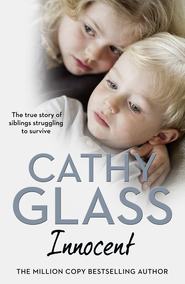По всем вопросам обращайтесь на: info@litportal.ru
(©) 2003-2024.
✖
Where Has Mummy Gone?: Part 2 of 3: A young girl and a mother who no longer knows her
Настройки чтения
Размер шрифта
Высота строк
Поля
‘No, stay, then I won’t have to say everything twice.’
I settled in one of the easy chairs. Neave and Melody were sitting on the sofa, and my children had made themselves scarce and were in their bedrooms. Neave drank some of her coffee and then set the cup and saucer on the occasional table. ‘I’ve explained to Melody that I’ve spoken to the doctor who’s looking after her mother and he has told me that her mummy is well enough to have visitors, but she will need to stay in hospital for the foreseeable future. Melody can visit on Monday – I’ll give you the details. I suggest you go there straight from school so it’s not too late for her.’
‘Yes, that’s fine,’ I said, then to Melody, ‘That is good news.’
She nodded but then asked, ‘What’s foreseeable?’
I left Neave to answer, as she’d used the term. ‘It means as far as we can see, possibly for good. Some people live in a type of hospital called a care home permanently if they can’t look after themselves.’
Melody thought about this. ‘So won’t Mummy ever be going home?’
‘The doctor doesn’t think she is well enough,’ Neave said.
‘When will she be well enough?’ Obviously, long-term care was a difficult concept for a child of eight to grasp.
‘It’s likely your mummy may never be well enough to go home,’ Neave said, letting her down as gently as she could. ‘So the care home staff will look after her and that will become her home.’
Again, Melody thought about this and then made a connection. ‘But if Mummy doesn’t go home then I can’t.’
‘No, but you are being well looked after by Cathy. You said on your review form you liked living here and were happy.’
I watched Melody’s face as she took it all in. ‘I’d rather be with my mummy at our home,’ she said. ‘Even if it was cold and there was nothing to eat.’
‘I know it’s difficult,’ Neave said. ‘But I think it will become easier for you when you start seeing your mummy regularly.’
I thought she was probably right. Once children in care settle into a routine of seeing their parent(s) at contact, it allows them to concentrate on other aspects of their life.
‘How often will I see my mummy?’ Melody asked.
‘We think once a week to begin with.’
‘Then will it be more? I could see her three times a week before.’
‘The situation is a bit different now,’ Neave said. ‘We’ll review it as time goes by. Cathy will be with you to answer any questions you may have.’
‘Will that lady be there too – the contact supervisor?’
‘No, just Cathy.’
‘Will Cathy stay with me and Mummy the whole time?’
‘Yes.’
‘Why? She didn’t at the Family Centre.’
‘No, but it’s different now with your mother being in hospital.’
‘How long will I see her for? It used to be four to five-thirty. I know because Cathy and Miss May have been teaching me the time and Cathy showed me on the clock.’ I smiled.
‘I’m going to leave the exact length of time to Cathy,’ Neave said. ‘But I think an hour is about right.’ Neave glanced at me and I nodded.
‘Why not longer?’ Melody asked.
‘Because we don’t want your mummy getting overtired and agitated.’ All this must have seemed odd to Melody, who’d been used to living with her mother whether she was tired and agitated or not, but of course Neave was now looking at contact in terms of Amanda being a patient, not just a mother seeing her daughter. ‘Let’s see how it goes,’ Neave said, and drank the rest of her coffee.
‘Shall we take Mummy dinner like we used to?’ Melody now asked me.
‘She’ll have plenty to eat in hospital, but we could take her a snack,’ I suggested. ‘Perhaps some fruit and biscuits, and you could make her a card. That’s what people usually do when they visit family in hospital.’
‘Yes, I’ll make her a card,’ Melody said.
‘That’ll be nice,’ Neave agreed. Melody didn’t have any more questions, so we spent a little while talking about Melody’s routine, then Neave gave me the details of the hospital ward where Amanda was. Satisfied that Melody was being well looked after, Neave then asked to see Melody’s bedroom before she went. It’s usual for the social worker to check the child’s room during their visit. I stayed in the living room while Melody took Neave upstairs. Her room was far more attractive now, more personalized, with the belongings she’d acquired since coming to me. Nothing had come from home and now Amanda was in hospital I doubted any would. They were up there for about five minutes and when they came down Neave said, ‘She clearly loves her bedroom.’
‘Good.’
Picking up her bag, Neave prepared to leave. ‘Have a good weekend then. I’ll phone next week to see how contact has gone.’
Melody went off to play while I saw Neave out. It was now nearly six o’clock and I was glad I’d prepared dinner earlier and it was ready in the oven. We all ate and then after dinner Melody made a lovely card for her mother using colouring pens, and sticking on felt shapes and glitter. By the time she’d finished there was glitter everywhere, including on the cat, whose fur sparkled in the light, until, worried she might lick it off, I gave her a good brush.
Despite having been told it was highly unlikely she or her mother would ever return home, Melody was happy because she was seeing her mother on Monday. It overrode everything else. Plus we had a busy weekend. I took Melody swimming on Saturday morning, and Lucy came too. Then in the afternoon I took her to the cinema and Paula joined us. On Sunday we visited my parents and Melody told both of them – jointly and separately – that she was seeing her mother on Monday. ‘She’s in hospital,’ she explained. ‘I’m going to see her after school. Cathy will be there too and we are going to take her a snack.’
‘That’s lovely,’ my mother said. ‘Your mummy will be so very pleased to see you.’
My family appreciated, as I did, just how important it was for Melody to see her mother. Mum had made cupcakes for our visit and she put some in a stay-fresh box for Melody to give to her. ‘Thank you, my mummy will love these,’ Melody said gratefully. ‘Like she did Cathy’s rice pudding. Do you think Mummy will have rice pudding in hospital?’
‘I am sure she will,’ Mum said.
All Melody’s hopes therefore were pinned on seeing her mother on Monday and she planned what they were going to do. I didn’t disillusion her by saying that her mother might not be up to playing games, because in all honestly I didn’t know. Amanda had played with Melody a few weeks ago when she’d seen her at the Family Centre. She couldn’t have deteriorated that much, could she?
On Monday morning Melody was up early and, once dressed, she carefully set by the front door (so I wouldn’t forget to bring them later) the card she’d made, the box of cakes, and some fruit and chocolate biscuits she’d selected from the cupboard.
‘Don’t be late,’ she told me when I saw her into school. ‘Neave said we’re going straight from school to the hospital.’
‘I know,’ I smiled. ‘I won’t be late.’ And with a hop, skip and a little wave she went happily into school.
On the way home I stopped off at the supermarket, and I was unpacking the shopping in the kitchen when the phone rang. I was slightly surprised to hear Neave’s voice, as I wasn’t expecting to hear from her again until after Melody had seen her mother this evening.
‘A care home has been found for Amanda,’ she said. ‘She is being transferred there later today, so contact won’t take place.’
‘Oh no. Can’t Melody see her mother before or after the move?’
‘No, because I’ve no idea what time she’ll be moved, and the hospital don’t know yet either. It’ll depend on when transport is available.’
‘Oh I see, oh dear. Melody is going to be so disappointed.’
‘I appreciate that, but it can’t be helped. She’ll see her mother as soon as she’s settled at the care home.’
‘Shall I take her tomorrow then?’ I asked.
Другие электронные книги автора Cathy Glass
Innocent




 0
0











